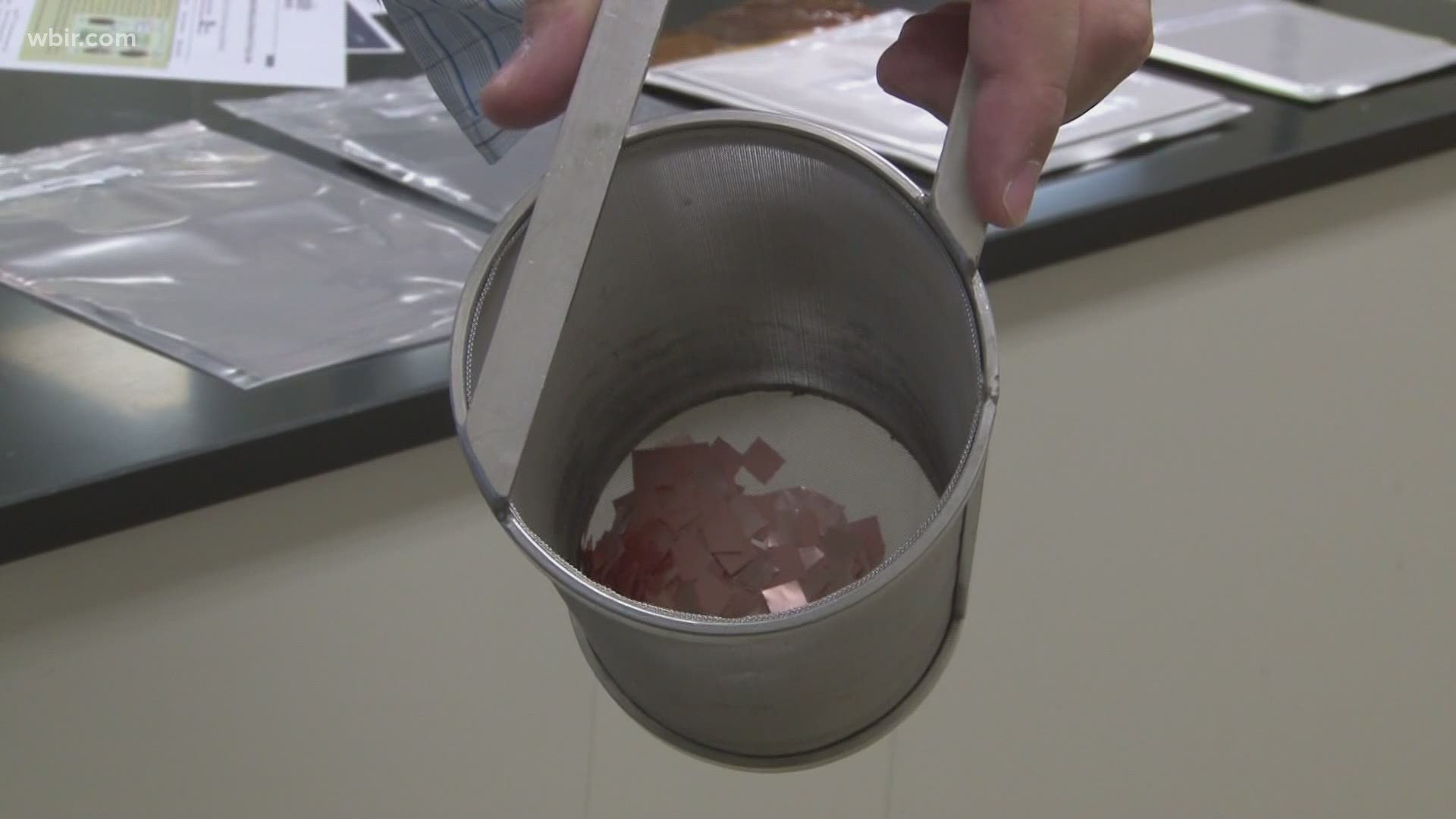OAK RIDGE, Tenn. — Lithium-ion batteries are in almost everything from cell phones, laptops, electric cars and almost all other electronics. Yet, many are accumulating in landfills.
So, a group of researchers at Oak Ridge National Laboratory developed a new way to recycle parts of lithium-ion batteries so they can be made into brand new ones. The process separates valuable parts of the battery from used parts, leaving manufacturers with cathodes, graphite and other valuable materials that can be used to make more batteries.
The new process uses a specialized chemical that dissolves the materials that bind cathodes to collectors. Once they are separated, they can be safely repurposed without changes in their performance or physical characteristics, officials said.
"It would really significantly help the nation recycle lithium-ion batteries," said Ilias Belharouak, one of the researchers behind the process. "And, by the way, we can only recycle 5% to 10%, so we have a way to go."
Researchers said the new process has the potential to make batteries more than 60% cheaper than they are now. They expect to be available for manufacturers in around 5 to 10 years.

